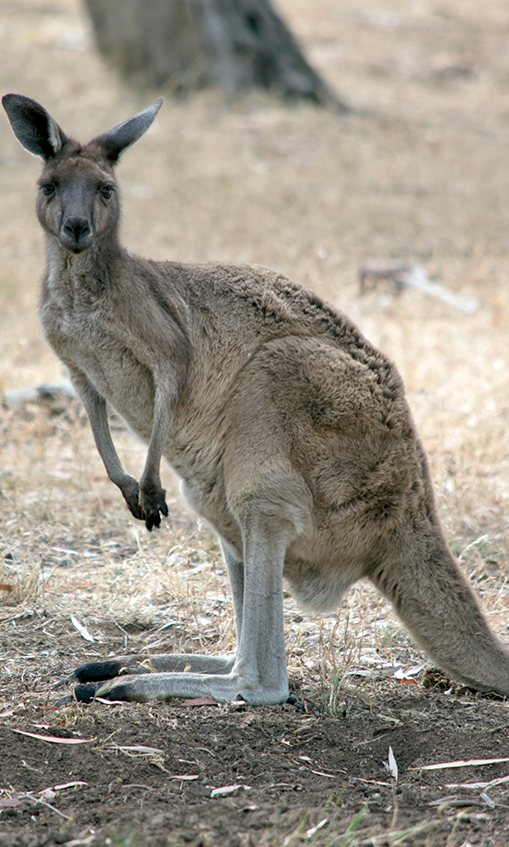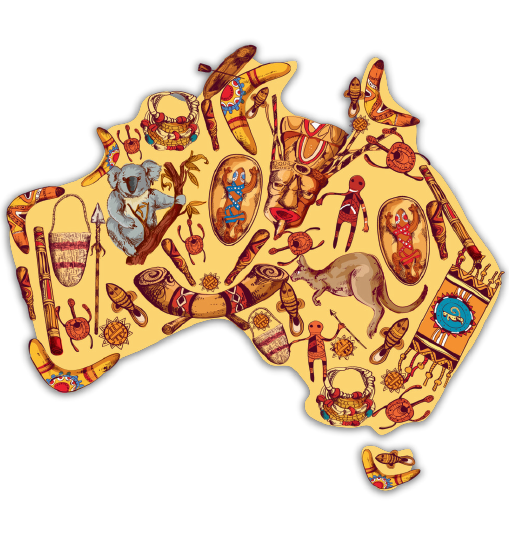Australia’s history is marked by a fascinating journey of exploration and settlement, beginning with Dutch landings in 1606 and British settlements in 1788. Many convicts from England and Ireland were sent to Australia as punishment and used for labour in Australian colonies. The discovery of gold in 1851 was a significant turning point in Australia’s history, triggering a massive rush of immigrants in search of prosperity, eventually leading to the establishment of six separate colonies by 1859. Ultimately, it culminated in the Federation of Australia in 1901, uniting the colonies into one nation. Australia’s economy has diversified in mining, agriculture, manufacturing, and other services in recent decades. Economic integration with East Asian countries has played a crucial role in its growth and development over the past 50 years. Today, Australia is a vibrant and thriving nation, shaped by its unique history and a diverse and dynamic economy.
Australia enjoys mild and delightful weather with over 3,000 hours of annual sunshine. The country experiences four seasons in most regions: summer (December – March, avg. temp 29°C), autumn (March-May), winter (June-August, avg. 13°C), and spring (September-November). Additionally, the tropical north has distinct wet and dry seasons.
As of 11 January 2024, the population of Australia is 26,576,825 people. Australia ranks 55th on the list of countries by population. Most of the population resides in urban regions and is projected to exceed 28 million by 2030.
Australia, the world’s sixth-largest country, boasts a diverse and captivating geography encompassing many landscapes. From the vast and arid expanses of the Outback to the lush rainforests of Queensland, Australia’s terrain is as varied as it is breathtaking. The iconic Great Barrier Reef, stretching along the northeastern coast, is the largest coral reef, showcasing a vibrant underwater world. The renowned Uluru in the continent’s centre contrasts with the untamed beauty of the Australian Alps in the southeast. With coastal plains, deserts, mountains, and tropical regions, Australia’s geography is a testament to nature’s boundless creativity, inviting exploration and awe.
Australia, a federal parliamentary constitutional monarchy, operates under a robust political system emphasising democratic values and the rule of law. The Commonwealth of Australia, established in 1901, has a parliamentary framework with two chambers – the House of Representatives and the Senate. The Prime Minister, who heads the government, is the majority party’s leader in the House of Representatives. Australia’s political landscape is characterised by a multi-party system, with the Australian Labor Party and the Liberal Party being prominent players. The nation has a tradition of peaceful transitions of power through regular elections, and the political discourse often centres around crucial issues such as economic policies, social welfare, and environmental sustainability. Indigenous representation and reconciliation are also integral aspects of the ongoing political dialogue in Australia.
Australia has a resilient and prosperous economy characterized by diverse industries. As a high-income nation, it has a well-developed market-oriented economy known for its stability and openness to global trade. Key sectors include mining, agriculture, services, and manufacturing. The country is a significant exporter of natural resources, particularly minerals and agricultural products. Cities like Sydney and Melbourne serve as financial hubs, contributing to the nation’s economic growth. Australia has weathered global economic fluctuations well, and policies promoting innovation and entrepreneurship contribute to its economic resilience. The government plays a crucial role in maintaining fiscal responsibility and financial stability, making Australia an attractive destination for investment and business.
Australia’s tax system is structured to fund essential public services and maintain economic stability. It operates on a progressive income tax model, where higher-income individuals pay a proportionally higher tax rate. Goods and Services Tax (GST) is applied to most goods and services at a flat rate of 10%, contributing significantly to government revenue. The nation’s taxation framework also includes corporate taxes, capital gains taxes, and a variety of other levies. Australia has a robust system to ensure compliance, with the Australian Taxation Office (ATO) overseeing tax administration. Regular reviews and adjustments to the tax system aim to maintain fairness, efficiency, and support economic growth.
Australia prioritises national defense and security as fundamental aspects of its governance. As an island continent with vast maritime borders, the Australian Defence Force (ADF) is crucial in safeguarding the nation’s interests. The ADF comprises the Royal Australian Navy, Australian Army, and Royal Australian Air Force, coordinating to ensure comprehensive defence capabilities. Australia actively participates in international security efforts and alliances, contributing forces to peacekeeping missions and cooperating with global partners. The Australian intelligence community also plays a vital role in monitoring and addressing potential threats. The nation’s defence and security policies aim to maintain regional stability, protect against external threats, and uphold Australia’s international peace and security commitment. For more information, visit www.defence.gov.au and www.dfat.gov.au.



























